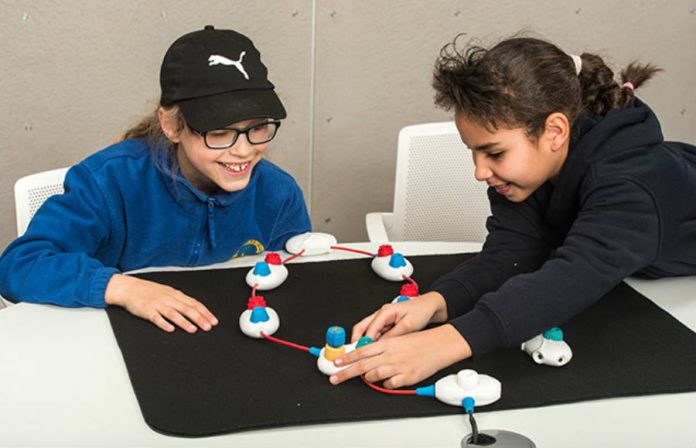
Microsoft Research has developed a program to teach visually impaired children the foundations of coding. It is called Project Torino, and it uses physical pods that kids can connect to each other as a kind of programming language.
The aim of this initiative is not only to help those with visual impairment get new valuable skills but also to help them find career paths that turn them into productive members of society regardless of their disability.
Project Torino is a groundbreaking program in the field of alternative teaching methods for programming, a skill that is increasingly in demand in the tech sector. Kids in developed economies are taught how to code from a young age to prepare them for this world.
How does Project Torino help kids learn to code?
The Microsoft Research team based the design of the tools for Project Torino on the latest tendencies in code teaching programs for kids around the globe. Programming teachers introduce concepts using a physical interface first and then move on to the digital field.
Whereas normal classes for children rely on blocks they can drag and drop to set up commands and build action sequences like real coding, this new initiative relies on pods that plug with each other to generate, for example, a music-playing program.
Key principles of programming can be taught using these simplified tools, such as logic gates, functions, and loops. Basic products like games and songs can be the result of this initiative, but there is something more behind it all.
Aimed at visually impaired children from ages 7 to 11, Project Torino is not truly limited to this specific group of people. It intends to become something larger in the future, considering kids with dyslexia or autism as potential programmers as well.
Project Torino–a physical programming language for kids with visual impairments to create code https://t.co/xlRLZwgfQW pic.twitter.com/y12dKSZp8m
— Microsoft Research (@MSFTResearch) March 15, 2017
Every kid deserves the same opportunity which is why project member Cecily Morrison believes in initiatives like this to pave the way for future generations in spite of the conditions that might be setting them back.
“OUR KEY DESIGN PRINCIPLES WAS INCLUSION. WE DIDN’T WANT TO ISOLATE THESE KIDS AGAIN. THIS IS A GREAT CAREER FOR A LOT OF KIDS WHO MIGHT HAVE DIFFICULTY ACCESSING OTHER CAREERS,” Morrison said.
As children learn how to code younger and younger every generation, they will be the first teens and adults to grow up in a world where programming languages are just as second-nature as real languages are.
Microsoft wants to build a bridge that closes the skill gap between regular and impaired kids, as well as the upcoming employment gap that will leave thousands, if not millions without a job. One of those jobs won’t be programming, and the company wants to prepare professionals from a young age.
Source: Microsoft










